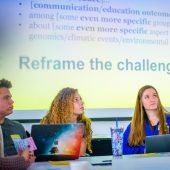
Abstract: While the majority of today’s youth accept climate change as a factual phenomenon, many educators and their curricula lag behind with a continued emphasis on confronting climate skepticism and denial. This article highlights our experience teaching a course, Climate Change and Sustainability, in which we encountered disruptive objections to our lessons from students who believe climate change is happening and desperately want action. However, the all-or-nothing stance of these students stifled conversation, and their lack of engagement with various topics kept them uninformed. To address these issues, we recommend structuring classroom debate around consensus-building activities to practice solution-oriented communication.
Continue Reading
Abstract: The contribution first outlines the state of research on the relatively new Fridays for Future (FFF) movement and categorises first studies particularly from a German perspective, to provide a basis for a further differentiation in this field of research. In this context, fundamental aspects of the movement are presented. The self-concept of the German Fridays for Future movement in terms of a young protest movement with a global orientation is then compared against the educational tasks stipulated in the school legislation of the federal states (Bundesländer) with their societal-educational objectives. The contribution focuses on the question in how far the self-concept of the German branch of the FFF movement as an international protest movement and the activists’ engagement for climate protection and political participation is reflected in the educational objectives stipulated in school legislation. Statements are analysed regarding climate and environmental protection, participation and democracy and transnational references in the school legislation. A link can be found between the self-concept of the Fridays for Future movement and school legislation, but this does not resolve the conflict between the school strikes and compulsory schooling – a conflict that is intended by FFF to highlight the perceived urgency of the cause. Schools, educational administrators and educational policymakers are thereby urged to take a stance.
Continue Reading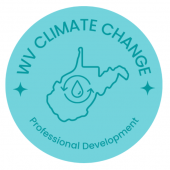
Abstract: The West Virginia Climate Change Professional Development (WVCCPD) Project was developed in 2019 as an effort to engage West Virginia K-12 teachers and informal educators in climate change professional development to encourage learning and action. Started by astronomy educators who are passionate about climate change, the project has been an experiment that has iteratively grown each year. By bringing in social science experts, communication specialists, community activists, master teachers, and learning how to best support teachers and their students through misconceptions and empowering action, we have engaged over 130 W.Va. educators. WVCCPD represents a promising case study for how educators can come together across disciplines and institutions to build an engaging climate change learning community, even in West Virginia, an area that is known for fossil fuel extraction. We hope this paper informs other teacher education practitioners.
Continue Reading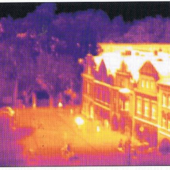
Abstract: A brief history of climatological science sets the stage for understanding the rise of the greenhouse gas thesis. That science is true as far as it goes, justifying our confidence, but it is an incomplete assessment of climatic systems. We have spent 40 years accepting the “pot lid” as the cause of the pot boiling over. That the “sun-warmed surface” impacts climate has been known for nearly 200 years. But greenhouse science failed to incorporate that and other scientific findings on urbanism, water cycles, and land management practices. To remedy this, I propose a broad climatic paradigm to address the actual cause of warming and provide a far more hopeful future with ample opportunities to resolve over-heating more completely, locally, and in a matter of months, years, or maybe decades, instead of centuries. Lastly, I discuss the significance of paradigm change, a new approach, and an expanded curriculum as challenges to sustainability education.
Continue Reading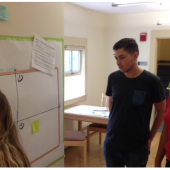
Abstract: Sustainability education can productively focus on concepts and/or skills, each playing an important role in preparing students to promote sustainability in society. We describe here the skills-based curriculum in an environmental sustainability practicum designed for undergraduate students. Although our curriculum provides training in numerous relevant skills, we focus here on one in particular: scenario planning. Originally developed in the 1970s by Shell Oil to develop robust business strategies in the face of future uncertainties, scenario planning is applicable to any planning domain where future conditions may be driven by the outcome of critical unknowns. For example, planning for effective community resilience in the face of climate change may depend on the degree of government support for renewable energy systems. In this practicum, students work in teams of 3-4 on the same challenge: Assess a specified human-natural system for its vulnerability to climate change in the next 20 years and develop solutions that effectively increase the resilience of the system in the face of uncertainty.
Scenario planning involves six steps: (1) Identify driving forces for future changes; (2 and 3) Identify certainties and uncertainties for future conditions; (4) Rank uncertainties by the degree to which they might affect future conditions; (5) Create a 2×2 grid of possible future scenarios based on the two most influential uncertainties; and (6) Describe the future world in each of these four scenarios. Using creative ideation techniques developed by IDEO for their Human-Centered Design methodology, students then use these four scenarios as the basis for envisioning effective strategies for promoting resilience regardless of how the critical uncertainties unfold (adaptive planning) or for influencing uncertainties to increase the probability that preferred scenarios manifest.
Abstract: While it is widely recognized that effectively addressing climate change requires a drastic reduction in carbon emissions, we nonetheless find ourselves in an impasse, unable to imagine nor bring about a post-carbon future. This is, in part, because climate change is not only a technological problem, but also a philosophical, cultural, and aesthetic problem—an existential crisis of thinking, or perhaps unthinking. To unthink the carbon regime, higher education must forge new thought models and educational platforms that operate in solidarity across disciplinary scales and territories. This report documents a collaborative course development process for a grant-funded transdisciplinary course entitled: Unthinking Oil: Public Architecture and the Post-Carbon Imaginary. In particular, we discuss a virtual Unthinking Oil Workshop held with students and faculty from a range of disciplines. The workshop provoked broad discussions regarding the role of higher education in addressing the many entanglements between climate change, society, and the built environment.
Continue ReadingThe present study examined what undergraduate students thought they knew about climate change, what they actually knew in terms of scientific knowledge, and how these two types of knowledge predicted their pro-environmental intentions and behaviors. We tested these questions using a cross-sectional online survey and data from a subsample of undergraduate student participants who believe in anthropogenic climate change (N = 3,310). Students reported moderate levels of self-assessed knowledge yet objectively lacked an understanding of the causes of climate change. Self-assessed knowledge more strongly predicted pro-environmental intentions and action than actual knowledge. Students’ understanding of the consequences of climate change predicted intentions while understanding the causes and climate science predicted action. Students self-identified a lack of knowledge and a lack of prioritization as barriers to climate change mitigating action. Pedagogical implications are discussed.
Continue Reading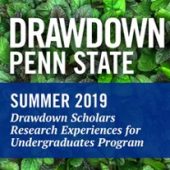
Abstract: Podcasts are increasing in popularity as an educational tool in recent years, but there remains a lack of podcasts that focus on climate change. The goal of this project was to create a series of audio files that address global warming solutions in the state of Pennsylvania, with each episode based upon a drawdown solution. Project Drawdown is a nonprofit organization that models how to reach “drawdown”— the future point in time when levels of greenhouse gases in the atmosphere stop climbing and start to steadily decline. This audio collection contains new and original podcasts addressing each Project Drawdown sector of global warming solutions, such as materials and waste, electricity generation, and land use. To highlight efforts in Pennsylvania, thirteen interviews were conducted with scientists, journalists, and professionals from organizations across the state, such as Feeding Pennsylvania, Southeastern Pennsylvania Transportation Authority (SEPTA), Philadelphia Green Roofs, StateImpact Pennsylvania, and Land Air Water Legal Solutions. Named Drawing Down in Pennsylvania, the podcast collection starts with an introductory episode, then eight episodes each corresponding with one of the Project Drawdown sectors, and wraps up with two additional episodes – one titled “Hope” with messages of optimism towards achieving warming solutions from the interviewees, and a special episode that focuses on The Pennsylvania State University and its efforts toward to drawdown. The audio collection is published online, together with corresponding transcripts and supplemental materials. It is hoped that these podcasts will help inform Pennsylvania residents to make choices and to take action for a sustainable future. For residents outside of Pennsylvania, these drawdown efforts can be applied to different populations and regions. The entire podcast series can be accessed at: https://sites.psu.edu/drawingdownpa/ and is suitable for middle school through college classrooms as well as general audiences.
Continue Reading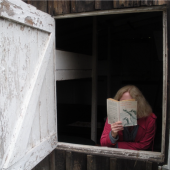
Abstract: Aldo Leopold’s classic essay, “Thinking Like a Mountain,” has been a touchstone of environmental ethics and sustainability education for over seventy years and continues to challenge and inspire wildlife ecology undergraduate students, and many more. But has it lost some power in the face of mounting evidence of accelerating damage and growing threats to the natural world, threatening biodiversity and human society on a global scale? Students and others now need another Leopold story, one that encapsulates an environmental ethic with a call for urgent action, a metaphor that urges not just change, but rapid transformation.
Continue ReadingMovies as Mirrors is a conversation podcast in which guests discuss films that reflect a social issue that interests or affects them. On this episode, Professor of Humanities George Handley discusses the 2011 film “The Tree of Life” with podcast creator Benjamin Thevenin and guest-host Camlyn Giddins. The conversation explores the film’s representations of our relationship with the natural world, and in particular its use of eco-theology to introduce its audiences to ecological issues. We discuss the value of film as environmental education for the public and the need for more nuanced cinematic representations of issues like climate change.
Continue Reading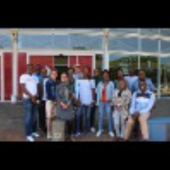
Abstract: Reporting to the public on climate change impacts, adaptation, and mitigation requires journalists to be equipped to engage with a wide range of technical content in order to communicate it in an accessible and engaging way. Recognizing the need for journalists from a wide range of backgrounds, including those from community newspapers and radio stations in South Africa, to be able to undertake this task, the South African Department of Environment Affairs in partnership with GIZ commissioned the authors to develop and deliver a four-day climate change reporting training programme. This paper presents an overview of the structure and content of the course, and details the reflections after undertaking such an endeavor.
Based on the lessons learned, and an awareness that this kind of training may take place in the context where working community-level journalists may have a low knowledge base (of both the journalistic craft, as well as the content of climate science) the following recommendations emerge: scientific training may need to be combined with basic journalistic training (depending on the participants); learning-by-doing is central to journalists building their capacity in climate reporting training; and mother-tongue delivery of material is critical to the success of such technical training courses.
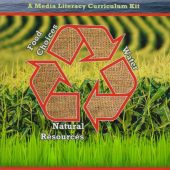
This article explores how teachers can integrate the theory and practice of media literacy education into the teaching of sustainability content. It highlights two lessons, one for elementary students on bottled water choices and one for high school students on climate change and agriculture, detailing lesson construction and execution. The article explains how praxis, the intersection of reflection and action, can be brought to life in classroom settings using contemporary media documents as codes to deepen understanding and to initiate involvement for change.
Continue ReadingThis editorial overview provides an introduction to this special Journal of Sustainability (JSE) issue devoted to water and climate change, which is being released during United Nations World Water Day 2020. The article contextualizes some of the water security risks that are exacerbated by climate change, such as increasing floods and droughts. This piece further provides a brief overview of the articles in the special water and climate issue of the JSE.
Continue Reading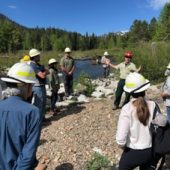
In this Q&A, Journal of Sustainability Education (JSE) senior editor Amanda Bielawski interviews Cora Kammeyer, research associate at the Pacific Institute, a California-based non-profit research organization focused on global water challenges. Together, they discuss the role of sustainability education, specifically within the corporate sector, in achieving water resilience in the midst of a changing climate in California and beyond. Following a discussion of California’s water challenges, this piece explores how the California Water Action Collaborative (CWAC) brings together corporations, including Coca-Cola, Google, and Proctor & Gamble, with NGOs such as The Nature Conservancy, WWF, and the Environmental Defense Fund, to engage in collective action and drive corporate water literacy. The interview explores, in part, why the corporate sector is “one of the biggest and most important levers for achieving global water security.”
Continue Reading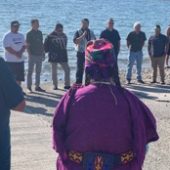
An Indigenous salmon re-joining ceremony on the dammed Columbia River inspires a broader understanding of the potential for human participation in healthy natural systems.
Continue Reading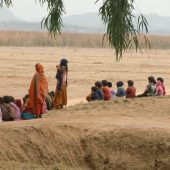
Access to fresh water is every individual’s universal and human right, and it is a key instrument in meeting the sustainable development goals given the important social, economic, and political roles that this natural resource pertains to. But the reality is that millions of people across the globe are suffering because water resources are diminishing. World leaders, researchers, and journalists, have gone as far as to say that water scarcity will be the next probable cause for world conflict (Molen & Antoinette, 2005). Yet issues regarding the insufficiency of water are not talked about extensively in the world, and the planet turns a blind eye to the global water crisis, assuming it to be a renewable natural resource that nature will keep on recharging. But the truth is, that human demand for ecological resources has been exhausting resources faster than the nature has the capacity to replenish them, and if human habits and unsustainable use of resources do not change than global resource crisis, like the present global water scarcity crisis, will surely intensify and become the leading cause for conflicts (Shahid, 2016). One major cause for the lack of mainstreaming of the water crisis is because of its portrayal as a stand-alone issue to the general public, owing greatly to the lack of world governments and their inability to contextualize it as a multi-dimensional problem. This paper highlights the crucial need for adopting a multi-dimensional approach for the dissemination of the problem. It follows an exploratory stance and sheds light on the multipronged social challenges and resulting vulnerabilities associated with water challenges in Pakistan.
Continue ReadingThis is a media review of Dr. Wallace Nichols’ (2014) text Blue Mind: The Surprising Science That Shows How Being Near, In, On, or Under Water Can Make You Happier, Healthier, More Connected, and Better at What You Do—with a specific focus on the book’s perspectives on the connections between water and climate change. The review describes the book as a sentinel text, noting that “its related summits have similarly set the stage for continued dialogue and research on our preference for water and the unique qualities that proximity to water has on our overall wellness.” The review specifically illustrates the ways in which the book “offers readers important strategies for dealing with the emotional challenges associated with climate change as well as suggests important insights into climate advocacy.”
Continue Reading
In this Q&A, Journal of Sustainability Education senior editor Amanda Bielawski interviews Diana Virgovicova, recipient of the 2019 Stockholm Junior Water Prize (SJWP). Virgovicova was among the SJWP recipients who recently issued a joint statement to the United Nations (UN) General Assembly that focused on the urgent need for water action, recognizing its intricate links to climate change. Rooted in the praxis framework, the joint statement focused on the critical role sustainability education, specifically, must and will play in turning scientific knowledge about the water-climate connection into actual action through policy change and other means. In this interview, Virgovicova underscored this point: “Education is the way to solve the water-climate sustainability crisis. We need to get more people involved. I think it is regrettable that environmental education is not a required assessment in schools.”
Continue Reading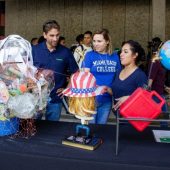
A semester-long ESL curriculum centered on the impacts of climate change was conceptualized and implemented at a community college English for Academic Purposes program in South Florida during the 2018-2019 academic year. After reading the 2018 IPCC report, a sense of urgency led to assembling and developing relevant materials, applying and extending lesson plans, creating collaborative projects to foster student engagement, and participating in professional development to help students acquire the necessary language skills and climate change-related content knowledge they need to understand and address the challenges their community is facing.
Continue Reading
Although higher education institutions are being encouraged to reorient their curricula to address sustainability, not everyone accepts the tenets of the United Nations’ mainstream approach to education for sustainable development (ESD), especially David Selby. This paper recounts intellectual gold nuggets garnered from critically reading his scholarship about education for sustainable contraction to counter climate change and global heating (instead of global warming). His ideas are deemed both enticing and disconcerting but apropos for these ‘interesting times.’ They provide a way for people to walk a different path than mainstream ESD one that respects transience, contraction, moderation and sustainability. This can best be achieved by deep education leading to deep, quantum learning so people can engage with the fears and truths staring them in the face. The thoughts shared in this paper should resonate with educators, politicians, industry leaders, civil society and the media.
Continue Reading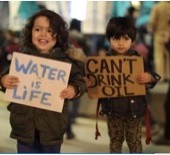
For my culminating master’s project, I attempted to apply carefully selected theories and research to guide the production of a five-minute video trailer for a potential future documentary titled Children of Change. The video project endeavors to illustrate the myriad ways families and children in the United States are impacted by climate change, including proximity to the processes that contribute to climate change such as fossil fuel extraction, transport, and consumption; how the climate issue is inextricably tied to and will continue to exacerbate existing systems of oppression at home and around the world; and how our children’s health and future well-being are most at risk. Children of Change also documents how parents, youth, and families are engaged in the fight for their lives.
Video can be viewed at: https://vimeo.com/226170224
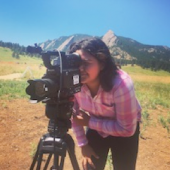
Here we describe how science learning can be enhanced through filmmaking. Combining the creative process of film production and its engaging storytelling and artistic components with science learning allows students to take ownership over their learning process and makes science accessible to learners who might not be reached through traditional science classrooms. We describe a model in which students develop a short film that investigates how climate and environmental change impacts their lives and their communities. Students are guided by college student mentors or teachers through a five-step program that includes: (1) selection and research of their topic, (2) development of a storyboard and script, (3) filming, (4) editing, and (5) a capstone screening event showcasing the final film. Through this process, students deepen their understanding of climate science and its complexity, while increasing their appreciation of the impacts of climate on society. Students also gain exposure to science and technology careers, while gaining confidence in their ability to complete a project.
Continue Reading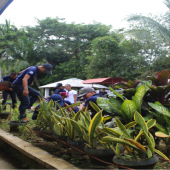
The participation of youth in any disaster risk reduction activities could be enhanced when they have high levels of awareness on climate change. But there seems to be scanty information about their level of awareness. The study was conducted to investigate the level of awareness of youth studying in a state university in the Philippines, and to determine the factors that influenced their awareness. The study employed the descriptive survey method using a 5-Lickert scale instrument involving the students of Partido State University (PSU), Camarines Sur, Philippines. Respondents (n = 247) were selected randomly from the undergraduate student population, and were stratified by their year levels. Although there was no qualitative difference observed among the respondents, the computed weighted mean for all variables under investigated differ across year levels. Based on the computed weighted mean, level of awareness is generally higher among senior students than first year students. Similar observations were made for all variables, i.e. computed weighted means increase as year level increases. In addition, the factors perceived to be significantly influencing the level of awareness of the respondents have differed across year levels. First year students perceived personal experience while second and third year students as well as fourth year students perceived education and government actions, respectively as much important factors that could influence their level of awareness. The channels of information about climate change also differ across year levels based on the computed weighted means. Among the four channels presented in the survey, first and second year students perceived mass media and family and trainings and seminars, third year students perceived internet and social media, and fourth year students perceived education, mass media and family and trainings and seminars as important channels of information. Overall, the differences could be utilized as bases in developing academic as well as extracurricular activities that are sensitive to the sex and year level of the involved students to improve their cognitive adaptive capacity.
Continue Reading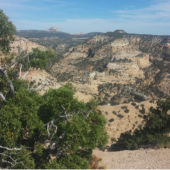
Climate change is a difficult subject to teach because it requires complex scientific understandings and is connected to personal beliefs (Spence, Poortinga & Pidgeon, 2012). It is important to teach students the science of climate change and impact their personal beliefs to produce behavior that will mitigate climate change. In this study pre and post surveys focusing on climate change understanding, belief, and behavior were administered. Interviews were also conducted. The quantitative and qualitative data were conflicting, but through triangulated data analysis learning design elements promoting Climate Change Literacy in higher education were identified. A conceptual model was developed with the learning design elements to improve the teaching of Climate Change Literacy. Findings depicted three design elements that increase students’ Climate Change Literacy: 1) Decreasing students’ psychological distance from climate change, 2) Utilizing students’ sense of place, and 3) Student investigation of their own research questions. Increasing students’ Climate Change Literacy is the critical first step in making sustainable societal transformations required for mitigating climate change, our most pressing environmental issue that impacts all people and the natural environment (Spence, Poortinga, & Pidgeon, 2012).
Continue Reading
Abstract: Scientific literacy through critical-thinking and problem-solving is an important part of the future of our nation. Understanding of science and engineering concepts creates informed citizens who can contribute to democratic conversations and be knowledge consumers. Scientific literacy also requires an understanding of data and data analysis. This lesson uses Global Climate Change as a platform for understanding graphical data by exploring the manipulations of graphs and helping students recognize the ways in which perspective and scale play a role in graphing data. The lesson provided is designed to be covered in 90 minutes with high school students. Using four graphs of global temperature change, students will work in groups to analyze graphs and recognize the way in which scaling can play an integral role in the perception of information as well as an understanding of the degree of temperature change over periods of time due to global climate change.
Continue Reading
Formal classroom learning experiences that support sustainable behaviors outside the classroom necessarily must bridge students’ home and school lives, as knowledge and practice learned in the classroom is implemented outside of school. To this end, we study the impact of the Green Ninja Energy Tracker curriculum, which uses students’ home energy data in the classroom to promote engagement in climate change and conservation behaviors. Data is drawn from class observations, a focus group, and pre- and post- surveys of a pilot implementation of this curriculum in a diverse 12th-grade Earth Science classroom at an alternative school. We investigate what factors contributed to student engagement in learning about and participating in energy conservation behaviors. We found that students were engaged by the immediacy of tracking their energy use in near-real time, and were motivated by the economic benefits experienced as a direct result of changing their behaviors. In addition, students reported discussing and problem-solving energy use with their families, and surfaced considerations that informed which energy behaviors were implemented and why. Students also reported high levels of personal agency in taking action on climate change, but were pessimistic about the likelihood of society as a whole taking action. We suggest that this pilot demonstrates the potential power of connecting the varied places of students’ experience by bridging home and school lives through energy tracker software as a catalyst for developing scientific expertise and engagement, and supporting energy conservation behaviors.
Continue Reading
Abstract: Through several original poems and contextual narrative reflection, “Finding Hope and Gratitude in the Climate Change Classroom” explores what it means to be a climate change educator and reflects on the author’s own experiences with cultivating agency and hope in the classroom.
Continue Reading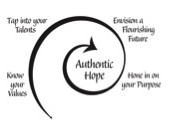
Abstract: Hope is a human process of discovery and perseverance that is based in personal values, a vision of the future, and a sense of purpose. This essay gives a brief overview on the role of phenomenological research in discovering the meaning of people’s lived experiences, such as the experience of hope. An example of phenomenological research on field ecologists’ lived experiences of climate change is provided in order to illuminate the experience of “silver linings” as the experience of hope while living in the midst of the dark cloud of climate change. An overview of a reflective curricular activity designed to cultivate hope and purpose in sustainability studies is provided.
Continue Reading
The theme of stewardship, or caring for God’s creation, features prominently throughout Catholic social teaching. This Care for Creation project was designed to make students become engaged science learners who want to dig deeper into solutions when they learn about the environmental impacts caused by human choices through a lens of Catholic faith. By employing a Project-Based Science strategy and incorporating many of the themes of Catholic social teaching, students learned about climate change in a year-long sustainability education experience, shared their knowledge with their school and parish, and sponsored projects to help the poor and vulnerable of their city and abroad. This project can be used as a model for incorporating sustainability content and Project-Based Science learning into a Catholic science curriculum.
Continue Reading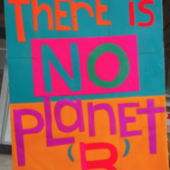
This article attempts to fill a gap in the sociological literature by detailing how I taught a sociology course ‘Society and Climate Change’. I discuss the theories I used to frame my course – Barry Commoner’s laws of nature (1976) and Patricia Hill Collin’s intersectionality (2009) – and then I present and analyze the pedagogical practices I used that attempted to put these two theories into practice by embodying connectedness through love, in order to create what David Korton refers to as an ‘earth community’ (2010).
Continue Reading
This study presents outcomes from the Girls Energy Conservation Corps, a research and development project that produced a series of six patch activity guides for girls age 8-14 who are members of the Girl Scouts of Eastern Massachusetts. The program focused on integrating engaging online and real world activities that involved girls in learning about climate change and their role in it, in saving energy, understanding the importance of collective goals and action to address climate change, and using new media creatively to educate peers and the community about energy conservation. Positive changes in knowledge, behavior, and attitudes pre to post suggest that a carefully designed program can address the challenges of educating children about energy conservation and climate change at this age, even if participant exposure to the program is brief. Findings also bring to light that developmental differences may be important to deconstruct in future studies when applying adult-tested behavior change models and theories to youth.
Continue Reading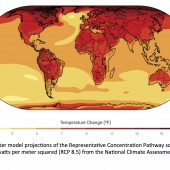
Energy education, vital though it is, remains incomplete if it doesn’t explicitly address the impacts of human activities, specifically the combustion of buried solar energy/fossil fuels, on the environment in general and climate system in particular. Projections based on current emission trends indicate a likely increase of the radiative forcing of energy in the Earth system from around three waters per meter squared today to over eight by the year 2100, substantially heating the planet in the process. Efforts to avoid or minimize the connection between human energy consumption and changing climate amount to a form of science denial through omission. In order to address the causes, effects, and risks of climate change and appreciate the range of options to minimize negative impacts and maximize resilience, energy and climate literacy efforts should be combined and ideally infused throughout the curriculum.
Continue Reading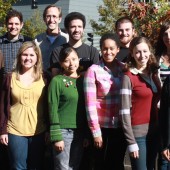
This article discusses the evolution and work of Brown University’s Climate and Development Lab (CDL). As leaders of the CDL, we engaged students in experiential education while attending the United Nations climate change negotiations in Cancun, Mexico in 2010, and in Durban, South Africa in 2011. Simultaneously, we collaborated with students to provide relevant and timely research and public scholarship oriented by the goal of advancing global justice in international climate change policy. Here we offer a conceptualization of our pedagogy for the CDL, which is a synthesis of two guiding principles: ‘engaged education’ and ‘global just sustainability’. We discuss the ways in which we organized the CDL in relation to this pedagogy and everyday logistics, and reflect upon our accomplishments and the challenges that we faced. We argue that while there are areas where we can improve upon our practice, the potential of this type of learning is considerable, and can be complementary to producing scholarly outputs that contribute to a more just and sustainable world.
Continue Reading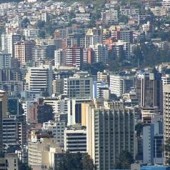
Two developing strands of a multidisciplinary literature provided an impetus for this paper: 1) the emergence of new regionalism, new urbanism, and smart codes that inform urban planning and design principles and practices for environmental sustainability, and 2) the diffusion of telecommunication and multi-media technologies that facilitate implementation of pedagogic principles in the “classroom.” The emerging urban planning and design paradigms anchor environmental sustainability issues firmly in place and space with an emphasis on the physical form of cities and regions, which, due to induced vehicular travel, is linked to greenhouse gases with consequences for climate change. Innovations that enhance learning in the classroom or the community increasingly embed and diffuse telecommunication and multimedia technologies. The intersections of urban sustainability, planning, pedagogy, and technology are briefly reviewed in this paper. It turns out that urban planning and design paradigms—particularly those with an emphasis on systemic knowledge, holistic views of both the natural and built environments, collaboration, communication, and reflective practice—synergize with environmental sustainability goals. Furthermore, these very features are ingredients for effective education for urban sustainability, particularly in conjunction with advanced telecommunication and multimedia technologies.
Continue Reading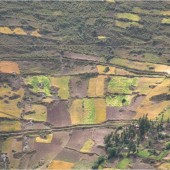
In this comprehensive review, Kenneth Young gives a robust and sweeping analysis of how global climate change might affect landscapes in the global South. His unique emphasis on including the human element, within both a current societal and historical-political framework—provides a hefty morsal of food for thought regarding the multiple and complex ways in which real cultural and natural landccapes will respond to global warming.
Continue Reading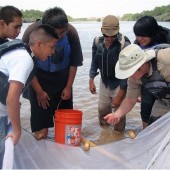
Maceo Carrillo Martinet calls for bringing the local geography of sustainability into STEM (Science, Technology, Engineering, Math) curricula, all the while framing this call in the global context of climate change. He makes a convincing case, based on the experiences of the Instituto Querencia in New Mexico, for using three principals to guide STEM curricula: students as agents of change; diverse cultural perspectives enrich the curriculum; and involve the local community—wherever you might be—in the curriculum.
Continue ReadingThis case study presents the threat that newly formed glacial lakes pose for mountain dwellers as well as infrastructure down valley. The article discusses efforts under way in Apolobamba National Park to include glacial lakes in their “social monitoring” system in order to include the local population in defining management options for potentially dangerous glacial lakes.
Continue Reading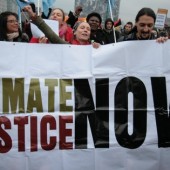
In this insightful review of Brian Tokar’s book, Randall Amster hails the work as a hopeful response to climate change that, rather than playing off of apocalyptic scenarios, envisions a future where society is re-structured not only in technological and economical terms, but also towards a more socially equitable way of life.
Continue Reading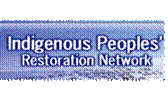
In this deeply articulate analysis, Dennis Martinez argues that Traditional Ecological Knowledge (TEK) of indigenous communities can be complementary to Western science, but“ bridging” or “integration” with Western Science will inevitably lead to second-rate status for TEK. The unique and powerful, place-based and ancient, traditional ways of knowing are based on the same fundamental human ways of analyzing the natural world. But the language used to conduct, express and translate indigenous understanding is in danger of loss to oppression and assimilation.
Continue Reading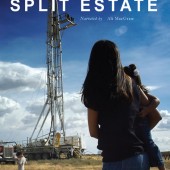
Mark Seis brings the important messages of the film, Split Estates, to our attention in this interesting review. He sees four important warning messages from the film regarding the development of natural gas, what is so commonly viewed as the “cleanest” of fossil fuels.